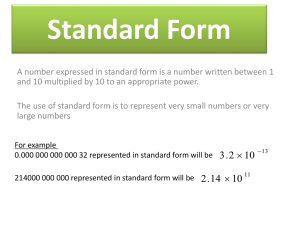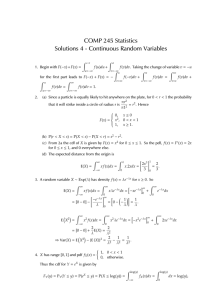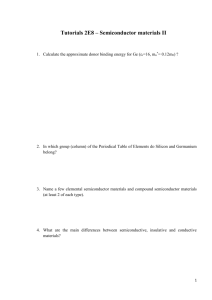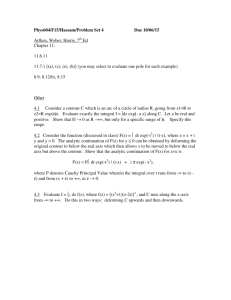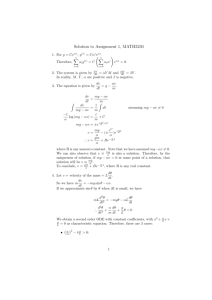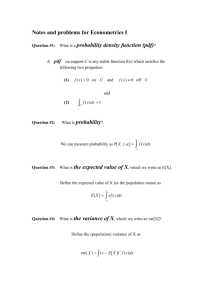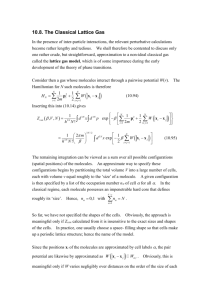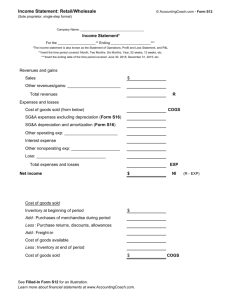Syllabus 448-control
advertisement
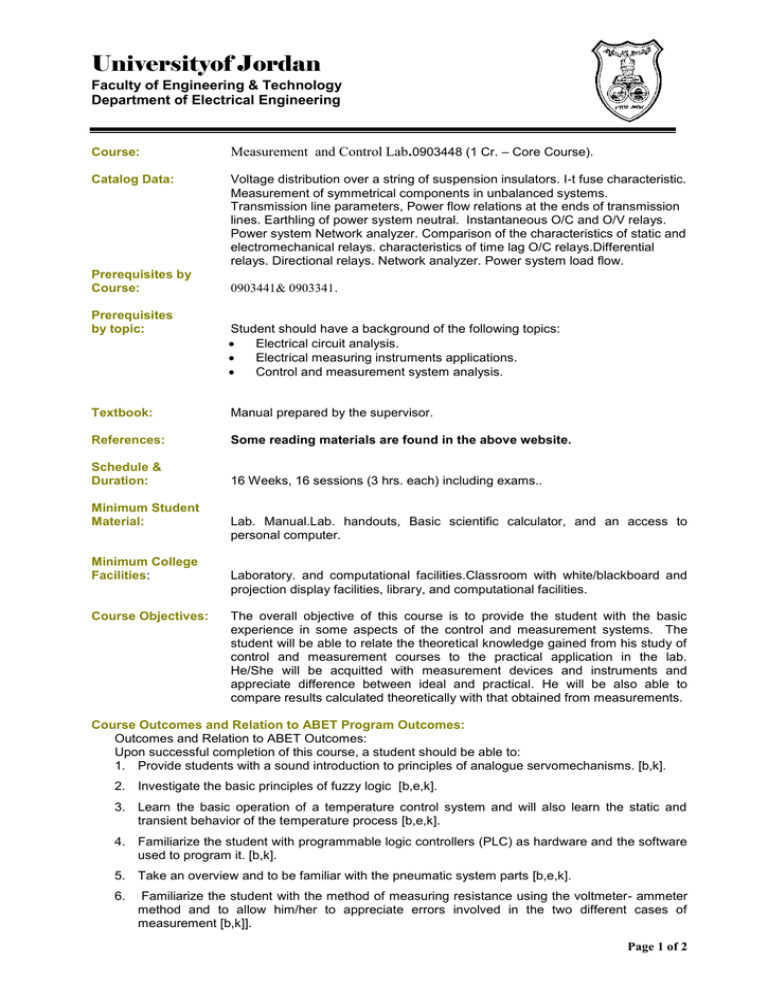
Universityof Jordan Faculty of Engineering & Technology Department of Electrical Engineering Course: Measurement and Control Lab.0903448 (1 Cr. – Core Course). Catalog Data: Voltage distribution over a string of suspension insulators. I-t fuse characteristic. Measurement of symmetrical components in unbalanced systems. Transmission line parameters, Power flow relations at the ends of transmission lines. Earthling of power system neutral. Instantaneous O/C and O/V relays. Power system Network analyzer. Comparison of the characteristics of static and electromechanical relays. characteristics of time lag O/C relays.Differential relays. Directional relays. Network analyzer. Power system load flow. Prerequisites by Course: Prerequisites by topic: 0903441& 0903341. Student should have a background of the following topics: Electrical circuit analysis. Electrical measuring instruments applications. Control and measurement system analysis. Textbook: Manual prepared by the supervisor. References: Some reading materials are found in the above website. Schedule & Duration: 16 Weeks, 16 sessions (3 hrs. each) including exams.. Minimum Student Material: Minimum College Facilities: Course Objectives: Lab. Manual.Lab. handouts, Basic scientific calculator, and an access to personal computer. Laboratory. and computational facilities.Classroom with white/blackboard and projection display facilities, library, and computational facilities. The overall objective of this course is to provide the student with the basic experience in some aspects of the control and measurement systems. The student will be able to relate the theoretical knowledge gained from his study of control and measurement courses to the practical application in the lab. He/She will be acquitted with measurement devices and instruments and appreciate difference between ideal and practical. He will be also able to compare results calculated theoretically with that obtained from measurements. Course Outcomes and Relation to ABET Program Outcomes: Outcomes and Relation to ABET Outcomes: Upon successful completion of this course, a student should be able to: 1. Provide students with a sound introduction to principles of analogue servomechanisms. [b,k]. 2. Investigate the basic principles of fuzzy logic [b,e,k]. 3. Learn the basic operation of a temperature control system and will also learn the static and transient behavior of the temperature process [b,e,k]. 4. Familiarize the student with programmable logic controllers (PLC) as hardware and the software used to program it. [b,k]. 5. Take an overview and to be familiar with the pneumatic system parts [b,e,k]. 6. Familiarize the student with the method of measuring resistance using the voltmeter- ammeter method and to allow him/her to appreciate errors involved in the two different cases of measurement [b,k]]. Page 1 of 2 7. Investigate the operational amplifier applications as DC electronic milli-Voltmeter using a permanent magnet moving coil meter (PMMC) [b,e,k]. 8. Measure the earth resistance using the fall-of-potential method. [b,k]. 9. Familiarize the student with LAB VIEW software, and data acquisition systems (DAQ) [b,e,k]. 10. Familiarize the student with thermocouple types and how to measure time constant for them. [b,k] Course Topics: Topic Contact Hours Description Exp.1 Dc-Servo Motor. 3 Exp.2 Introduction to Fuzzy Control. 3 Exp.3 Control of Temperature System 3 Exp.4 PLC and Electro-pneumatic Control System.. 3 Exp.5 Twin Rotor MIMO system. 3 Exp.1 : Measuring Resistance using Voltmeter-Ammeter Method 3 Exp.2 : OP-AMP as DC Electronic milli-VOLTMETER. 3 Exp.3 Earth Resistance Measurement 3 Exp.4 Introduction to LabVIEW and Data Acquisition Systems (DAQ) 3 Exp.5 Thermocouple and time constant measurement. 3 Computer Usage: Course work including assignments using MATLAB, MultiSIM and SPICE. Attendance: Class attendance will be taken and the University policy on absence shall be applied. Assessments: Reports, quizzes, assignments and quizzes. Grading policy: Reports Quizzes& Prep. 20% 10 % Mid. Exam. 30 % Final Exam 40 % Total 100% Instructor(s): Instructor Zamil Al-Zamil Office Ext. E-mail Microwave Lab. 22838 zamil@ju.edu.jo Student Outcomes (SO) a b An ability to apply knowledge of mathematics, science, and engineering An ability to design and conduct experiment as well as to analyze and interpret data. c An ability to design a system, component, or process to meet desired needs , within realistic constraints such as economic, environmental, social, political, ethical, health and safety, manufacturability, and sustainability. An ability to function on multidisciplinary teams An ability to identify, formulate, and solve engineering problems An understanding of professional and ethical responsibility. An ability to communicate effectively The broad education necessary to understand the impact of engineering solutions in a gloabal, economic, environmental, and societal context Arecognition of the need for, and an ability to engage in life-long learning Knowledge of contemporary issues An ability to use the techniques, skills, and modern engineering tools necessary for engineering practice d e f g h i j k Last Updated: April.17, 2014. Page 2 of 2
